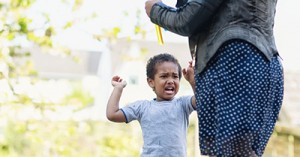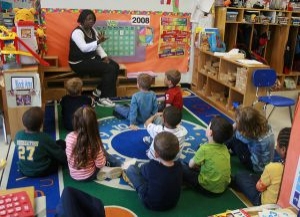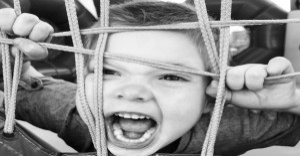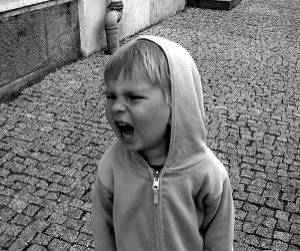Behaviourism is a learning theory developed by psychologists B.F. Skinner and John Watson, focusing on how behavior is shaped through reinforcement. It is based on the idea that children learn through stimulus-response interactions, where positive and negative reinforcement influence behaviours. The following article provides information on Key Concepts, Applications In Early Childhood, Modern Relevance In Childcare and more.
Key Concepts of Behaviorism in Early Childhood Education
-
Classical Conditioning (Pavlov & Watson):
- Learning occurs when a neutral stimulus becomes associated with a response.
- Example: A child associates a positive feeling with a learning activity when praised consistently.
-
Operant Conditioning (Skinner):
- Behavior is reinforced through rewards or consequences.
- Example: A child receives praise or a sticker for completing a task, reinforcing the behavior.
-
Positive & Negative Reinforcement:
- Positive reinforcement: Encouraging desired behavior by adding rewards (e.g., praise, stickers).
- Negative reinforcement: Encouraging behavior by removing an unpleasant stimulus (e.g., reducing wait time for a preferred activity).
-
Behavior Modification:
- Unwanted behaviors can be replaced with acceptable ones through consistent reinforcement.
- Example: Redirecting a child from disruptive behavior to a structured activity.
Applications in Early Childhood Education
- Structured Learning Environments: Clear routines and expectations help children understand consequences.
- Reward Systems: Sticker charts, praise, and privileges encourage positive behavior.
- Teacher-Led Instruction: Direct teaching methods focus on repetition and reinforcement.
- Classroom Management: Behaviorist strategies help educators maintain order and encourage participation.
- Skill Development: Breaking down tasks into smaller, manageable steps and rewarding progress can help children learn new skills, such as tying their shoelaces or using scissors.
- Language Learning: Positive reinforcement is often used in language acquisition, such as praising a child when they correctly identify a color or shape.
- Addressing Challenging Behaviors: Educators can use behaviorist strategies like redirecting attention or reinforcing alternative actions to manage and modify challenging behaviors.
Criticism & Limitations
- Some argue that behaviorism overlooks emotional and cognitive development.
- It may not fully address creativity, problem-solving, or intrinsic motivation.
Modern Relevance in Childcare
Despite critiques, behaviorist principles remain effective for:
- Introducing foundational skills.
- Creating structured and predictable environments.
- Managing classroom dynamics in practical ways.
To balance behaviorism, educators can incorporate child-led, inquiry-based methods alongside structured reinforcement techniques for a well-rounded approach.
EYLF Connection
-
Intentional Teaching: Educators guide children’s learning through planned interactions and reinforcement techniques.
National Standards Alignment
-
Element 5.1.1: Positive educator-to-child interactions, reinforcing respectful and encouraging relationships.
Further Reading
Child Theorists and Their Theories in Practice
Applying Early Learning Theories
Activities That Link To Educational Theories
Incorporating Theorists Into Early Childhood Documentation
References:
Behaviorist Theory, Rotel Project
Behaviorism in Education, National University
B.F. Skinner: Operant Conditioning and Behaviourism Theories. Early Years Tv







 Working as a childcare professional can be a challenge especially when dealing with behavioural problems which may arise. The techniques we use when dealing with
Working as a childcare professional can be a challenge especially when dealing with behavioural problems which may arise. The techniques we use when dealing with There are different types of behaviour that children can display and sometimes it can be hard to manage, especially if a child is having behavioural
There are different types of behaviour that children can display and sometimes it can be hard to manage, especially if a child is having behavioural As a parent, your behavioural expectations of your child can be higher than what is actually developmentally appropriate for your child's age.
As a parent, your behavioural expectations of your child can be higher than what is actually developmentally appropriate for your child's age.
 As Educators, there will be many instances where you will need to write about a child's behaviour. For a behaviour management plan, assessments, half-yearly or
As Educators, there will be many instances where you will need to write about a child's behaviour. For a behaviour management plan, assessments, half-yearly or As Educators when communicating with Parents (through verbal or non-verbal communication), there will be times where we need to discuss issues or concerns that may
As Educators when communicating with Parents (through verbal or non-verbal communication), there will be times where we need to discuss issues or concerns that may Challenging Behaviour is when a child does something that hurts themselves and/or other people.
Challenging Behaviour is when a child does something that hurts themselves and/or other people.
 As part of your child's development it is normal for your child to have anxiety and fears. A baby commonly shows a fearful sign to
As part of your child's development it is normal for your child to have anxiety and fears. A baby commonly shows a fearful sign to It's always difficult to bring up behavioural issues with parents, it can be nerve wrecking to tell a parent that their child misbehaves but that
It's always difficult to bring up behavioural issues with parents, it can be nerve wrecking to tell a parent that their child misbehaves but that All children deal with anger on a daily basis. Thinking about it as a child, there is a lot to be angry about. Elder people
All children deal with anger on a daily basis. Thinking about it as a child, there is a lot to be angry about. Elder people It is important to understand that your child behaviour problems could not just be from attention seeking. There are many factors to take into consideration
It is important to understand that your child behaviour problems could not just be from attention seeking. There are many factors to take into consideration


